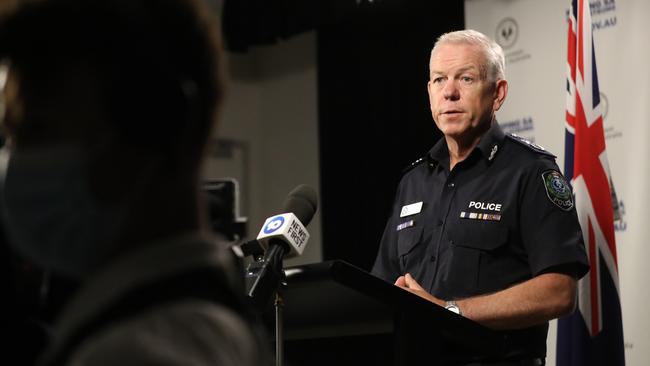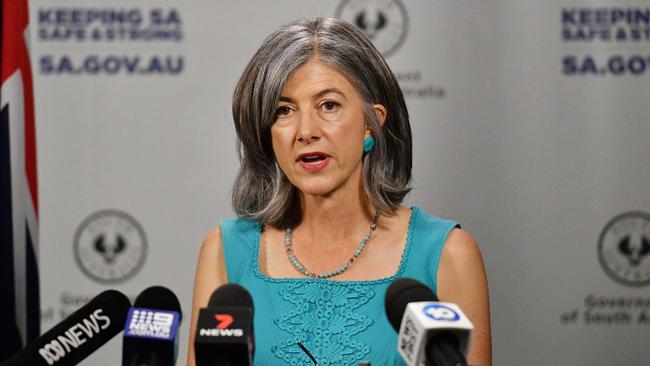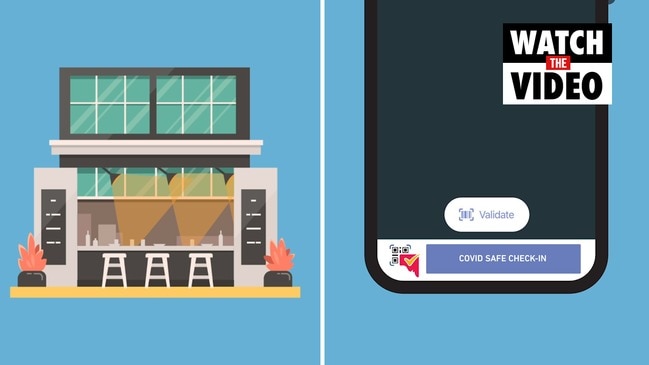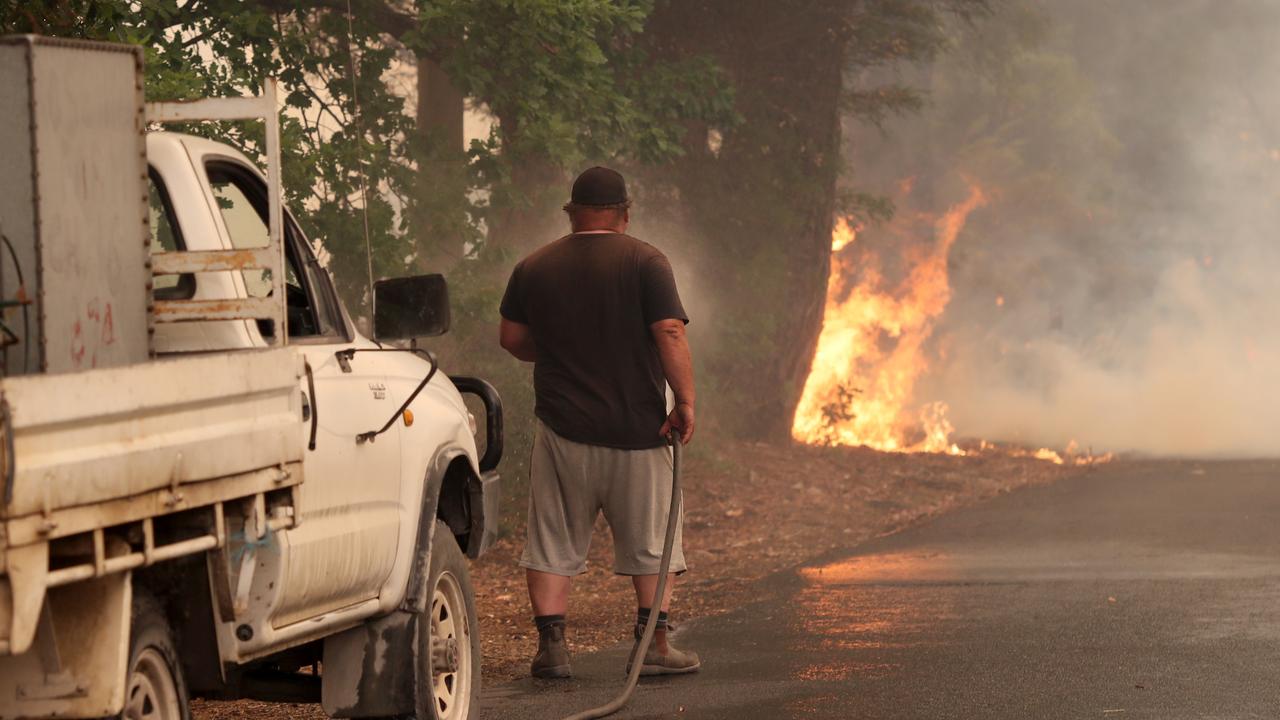SA Police Commissioner warns against QR code complacency
Millions fewer QR scans have been made than at their peak usage in SA, new data shows, prompting a new warning from the state’s top cop.

Coronavirus
Don't miss out on the headlines from Coronavirus. Followed categories will be added to My News.
The state’s top cop has strongly urged South Australians against QR code complacency amid falling use as MPs consider a proposal to jail those who abuse contact tracing data.
After an initial high take-up after its launch two months ago, during the state’s worst COVID-19 cluster, fewer people arenow using the technology.
And those who have it are using it less.
State Government figures show at least 1.1 million fewer “check-ins” in the last week of January compared to the first weekof that month.
The data, obtained by the Sunday Mail, shows an even greater drop, 2.1 million, compared to the peak usage just before Christmas.
More than half of QR code screening records have been deleted after a mandated purge of records every 28 days amid privacy concerns from the Law Society and the Civil Liberties council.
Separate police statistics show 359 QR code breaches fines since November 30 when it became mandatory in licensed venues and retail outlets.
Last week chief public health officer, Professor Nicola Spurrier, told the Sunday Mail she wanted QR codes to stay as a vital tool in cutting contact tracing from weeks to just hours.
Authorities say the highly protected encrypted data, which has not been wrongly accessed or hacked, is a “game changer” for SA Health although it has yet to access it to track cases.
Of 62.4m total check ins, from 1.3m mobile phones, 34.8 million records have been deleted.
State co-ordinator, Police Commissioner Grant Stevens, has warned against community complacency, which could threaten SA’s relatively low levels of restrictions.
Mr Stevens said usage was expected to fluctuate but hoped “complacency is not one of the reasons”.
“It is critical that all South Australians need to maintain focus on using the QR codes,” he said.
“It is one of the key tools to ensure that we can retain a level of business activity and movement in our community by having a quality contact tracing process to assist if a community transmission should occur.
“I continue to strongly urge everyone; and all businesses in this state, to keep using the QR codes. COVID is not going away anytime soon.”
A breakdown of figures from the Department of Premier and Cabinet, which manages the data for SA Health, shows 2.5 million check ins in the first week.
This peaked during mid-December’s Christmas shopping period when there were more than 8.7 million check ins.
The figures showed more than 6.6 million check ins in the last week of January, when there was an average of at least 945,000 recorded entries.
The biggest day was December 23 when 603,933 people checked in 1.73m times and the next biggest was 518,279 people on January 8.
In comparison 463,844 people checked in 981,170 times last Wednesday. The state’s population is 1.7m.
Officials say people to check in to each business they visit, meaning users can record multiple entries each day.
Up to 10 DPC staff with national security clearances manage the data.
During an outbreak, just one senior SA Health official can request details before it is shared with up to 50 authorised contract tracers only.
Mr Stevens, who gave a fresh public assurance the data was “highly protected”, said it was natural for such a “significant change” to take time to become second nature.
“It is natural that people may become complacent when South Australia has done so well and we enjoy lower levels of restrictions than almost any other jurisdiction,” he said.
Mr Stevens said QR codes will remain for most of the year but said the technology will “not be required once we have defeated this virus”.
“We all need to remember how important they are,” he said. “It is mandatory and it is vital to the ongoing physical, economic and social health of all South Australians.”

Those who unlawfully collect or disclose COVID-19 contract tracing data could face up to five years’ jail time, under proposals from SA Greens MLC Mark Parnell.
He this week proposed Emergency Management Act changes that would create similar punishment to identity theft crimes while legally forcing data deletions.
“In this time of great uncertainty and changing social norms, nefarious cyber actors will be looking to capitalise, and this new offence seeks to penalise those that try,” he told parliament.
The amendments also seek to enshrine in law the assurances frequently made by authorities that QR check-in data was deleted within 28 days.
“The major currency in this (QR) bargain between citizens and the State is trust,” Mr Parnell said.
“If the glue that holds this together is trust, then why wouldn’t we add emphasis to that trust by allowing the government to say - ‘This is what we are doing and it is against the law to do otherwise’.”
Attorney-General Vickie Chapman said there were already provisions in the Act that guaranteed data could not be intentionally exposed, albeit with certain exceptions.
Ms Chapman said the government was deleting more than one million check-ins every day.
“There is a rolling tally of deletions ... It’s a matter the government takes very seriously,” she said.
“On the face of it, is it necessary to put that in statute? Probably not, but nevertheless obviously we are always willing to have a look at that.”
She said there was already an “envelope of criminal sanction” for people who mishandle data.
Mr Parnell joined a growing chorus of voices, including the SA Law Society, calling on the government to amend legislation that backed up its promises.
“I do not doubt the integrity of (the government’s) commitments and I have no evidence that anything untoward has happened ...” he said.
“However ... it is also important that wherever possible, public assurances from governments be backed up by comprehensive legislation.”



